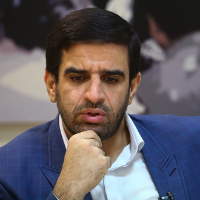Normative Threat and Rising of Religion in International Relations: What, Why and How to Interact
Author(s):
Article Type:
Research/Original Article (دارای رتبه معتبر)
Abstract:
Although the subject of religion has always played a marginal role in international politics, and it has been less regarded as an independent variable in understanding the events of the international system, various events such as the victory of the Islamic Revolution in Iran, the Quds and Palestine issue, the September 11th terrorist attacks on the World Trade Center, and Pentagon in the United States, as well as the emergence of a large number of extremist religious movements such as al-Qaeda organization, Al-Shabaab, ISIS, and etc., have attracted the attention of policy-makers to the role of religion in international system over the last decades.
These events in the global operational environment over the past decades have led to forming new forms of threat that are not understood by the mere emphasis on the materiality of the threat, and its perception is inevitably consists of a normative concept of the threat. On the other hand, given the role played by the notions and norms in world politics, we are facing with the growing importance of identifying values and elements within communities. The emergence of radical religious movements, the growth of modernity and the increase in the volume of intercultural and inter-civilization communication and interchanges following the intensification of the globalization process has led to the emergence of a new form of threat, called as "normative threat".
This research using a descriptive-analytical method aims to find the relationship between factors influencing the emergence of normative threat and the political oppression of religion in the contemporary world. It seems that the re-emergence of religion in the field of international relations in its extreme form has led to the emergence of this notion that religion in the international community is a source of conflicts and a threat to establishment of international order. While religion has a high capacity for legitimacy and norm making system that can serve to strengthen the international peace and stability. The results of this study show that the marginalization of religion in theoretical considerations in the field of international relations and ignoring it has led this field do not have the capacity to understand and explain some of the events of the international system.
These events in the global operational environment over the past decades have led to forming new forms of threat that are not understood by the mere emphasis on the materiality of the threat, and its perception is inevitably consists of a normative concept of the threat. On the other hand, given the role played by the notions and norms in world politics, we are facing with the growing importance of identifying values and elements within communities. The emergence of radical religious movements, the growth of modernity and the increase in the volume of intercultural and inter-civilization communication and interchanges following the intensification of the globalization process has led to the emergence of a new form of threat, called as "normative threat".
This research using a descriptive-analytical method aims to find the relationship between factors influencing the emergence of normative threat and the political oppression of religion in the contemporary world. It seems that the re-emergence of religion in the field of international relations in its extreme form has led to the emergence of this notion that religion in the international community is a source of conflicts and a threat to establishment of international order. While religion has a high capacity for legitimacy and norm making system that can serve to strengthen the international peace and stability. The results of this study show that the marginalization of religion in theoretical considerations in the field of international relations and ignoring it has led this field do not have the capacity to understand and explain some of the events of the international system.
Keywords:
Language:
Persian
Published:
Journal of Political Research in Islamic World, Volume:7 Issue: 3, 2017
Pages:
125 to 154
magiran.com/p1809210
دانلود و مطالعه متن این مقاله با یکی از روشهای زیر امکان پذیر است:
اشتراک شخصی
با عضویت و پرداخت آنلاین حق اشتراک یکساله به مبلغ 1,390,000ريال میتوانید 70 عنوان مطلب دانلود کنید!
اشتراک سازمانی
به کتابخانه دانشگاه یا محل کار خود پیشنهاد کنید تا اشتراک سازمانی این پایگاه را برای دسترسی نامحدود همه کاربران به متن مطالب تهیه نمایند!
توجه!
- حق عضویت دریافتی صرف حمایت از نشریات عضو و نگهداری، تکمیل و توسعه مگیران میشود.
- پرداخت حق اشتراک و دانلود مقالات اجازه بازنشر آن در سایر رسانههای چاپی و دیجیتال را به کاربر نمیدهد.
دسترسی سراسری کاربران دانشگاه پیام نور!
اعضای هیئت علمی و دانشجویان دانشگاه پیام نور در سراسر کشور، در صورت ثبت نام با ایمیل دانشگاهی، تا پایان فروردین ماه 1403 به مقالات سایت دسترسی خواهند داشت!
In order to view content subscription is required
Personal subscription
Subscribe magiran.com for 70 € euros via PayPal and download 70 articles during a year.
Organization subscription
Please contact us to subscribe your university or library for unlimited access!


